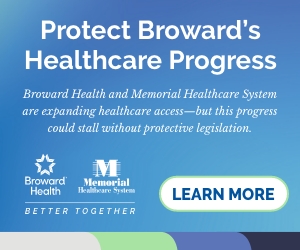If you care about helping kids from lower-income families get a good education or if you simply want your own kids to have access higher quality schools, then Gov. Ron DeSantis’ recent announcements should get your attention.
In just the last few weeks he’s made a lot of major announcements for Florida education. He’s presented a plan for an “Equal Opportunity Scholarship” he says would help financially strapped parents send their kids to private schools. He’s proposed changes to Florida’s “Best and Brightest” program that would give bonuses to principals at high-poverty schools who improve the school’s grade. And he’s mapped out a plan that would pave the way for more high-quality charter schools to come into economically depressed areas. Not to mention his repeal of Common Core. (Seriously, don’t mention that right now.)
It’s pretty exciting. His misguided position on Common Core aside, I love that we have a governor who’s focusing on kids who often have the least access to good schools and quality teaching. But some, particularly teacher union-aligned groups, and the Tampa Bay Times, think his Equal Opportunity Scholarship is unconstitutional.
I, on the other hand, actually think he has a chance of getting it done. Based on the new makeup of the Florida Supreme Court, a recent U.S. Supreme Court case from 2017, and our very own Florida Voluntary Pre-Kindergarten program, I think lawmakers (and state lawyers defending against a possible lawsuit) can make a pretty compelling case for why we can fund his Scholarship program.
But what do these scholarship programs do?
The governor’s proposed scholarship program would supplement an existing program called the Florida Tax-Credit Scholarship. Essentially, with the existing program, Florida businesses can donate a certain amount of money toward this scholarship fund instead of toward their taxes. That fund then pays for students from qualified families (those making 200 percent of the poverty level or less) to get a voucher for about $6,500 to $7,000 to attend a private school, including religious schools. It could also pay for transportation to a different public school.
Florida’s Tax-Credit Scholarship is managed by Step Up For Students, which serves about 100,000 kids a year and is the largest private-school choice program in the country. It’s also really effective at helping low-income kids graduate from college, according to a major study by the Urban Institute. There’s a huge waiting list each year — more than 13,000 kids who can’t access the scholarship because the money in that fund simply runs out.
DeSantis says his new Equal Opportunity Scholarship would aim to help those on the waiting list, but his program would be a little different. It would serve families making up to 265 percent of the poverty rate. So if you’re a family of 5, like mine, you could make nearly $80,000 a year and still qualify (not exactly “low-income” in my book, but okay). The other big difference is that the money would come from taxes, not from business donations. This is potentially a huge sticking point.
The Constitutional Question
A recent Tampa Bay Times editorial suggested that DeSantis’ proposed Equal Opportunity Scholarship would violate the constitution because it would divert public tax dollars to private religious institutions.
In 2006, the Supreme Court of Florida struck down this exact idea when Gov. Jeb Bush tried to pass his Opportunity Scholarship.
But things have changed since 2006. Most notably, DeSantis recently appointed three new conservative judges to the state’s Supreme Court who may not see a problem with allowing families to take tax money to pay for a religious education.
After all, in 2017, the U.S. Supreme Court ruled that Missouri couldn’t prevent religious schools from receiving a benefit that was available to other schools. In other words, a state can’t treat private religious schools differently from private non-religious schools, at least not in that particular program.
And just last month, the FL Supreme Court basically said that courts can’t rule on the definition of “high-quality” schools, and that the constitutionally required “uniform system” of schools doesn’t mean you can’t have private school options like the scholarships allow.
Another strong argument lawmakers could make is that Florida already diverts tax dollars to private schools, including religious schools, in the Voluntary Pre-K program. Preschool is free for all four and five year olds in Florida because the state pays for it with a voucher. Parents are free to send their kids to the religious-based Bethel Christian Academy or the strictly secular Seminole Montessori, or any other private or public institution.
When I first heard Gov. DeSantis’ plan to create a new voucher program to send more kids to private schools I thought, ”No way; it’s not going to happen.” But now I think he actually might be able to pull it off. If he does, I think it’ll have the potential to make a big difference in the lives of thousands of children and their families.




